Heart Murmur in Cats: Symptoms and Best Treatment

By Evelyn Harcourt
februari 17, 2025 - 1 min read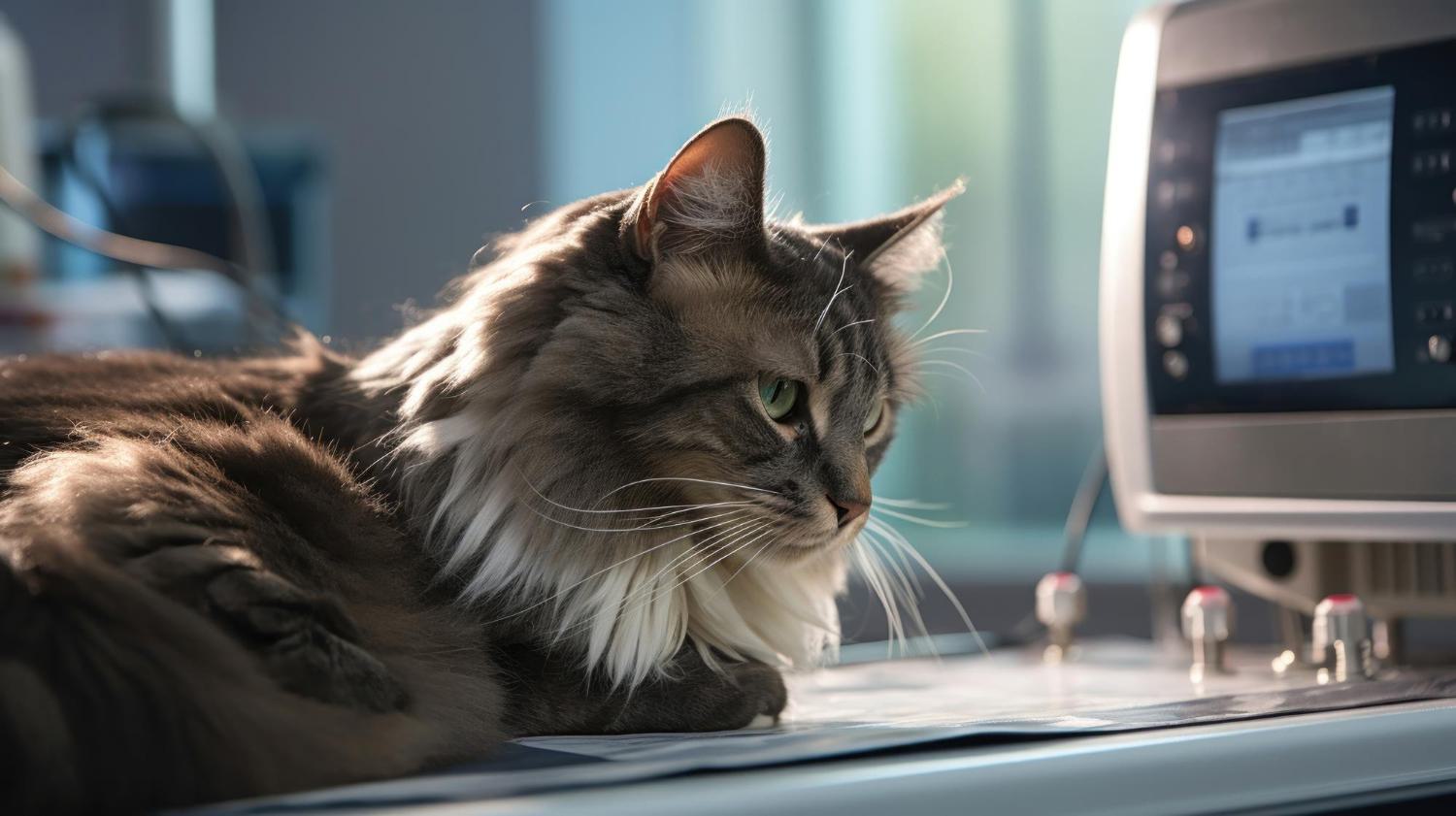
A heart murmur is not something you will detect from home. Many are picked up unexpectedly during a routine health check or when the cat is brought to the vet clinic with signs of being unwell.
Heart murmurs may or may not cause symptoms, and not every heart murmur will impact the cat’s quality or duration of life. This article explores heart murmurs, what they are, and what needs to be done once one has been identified.
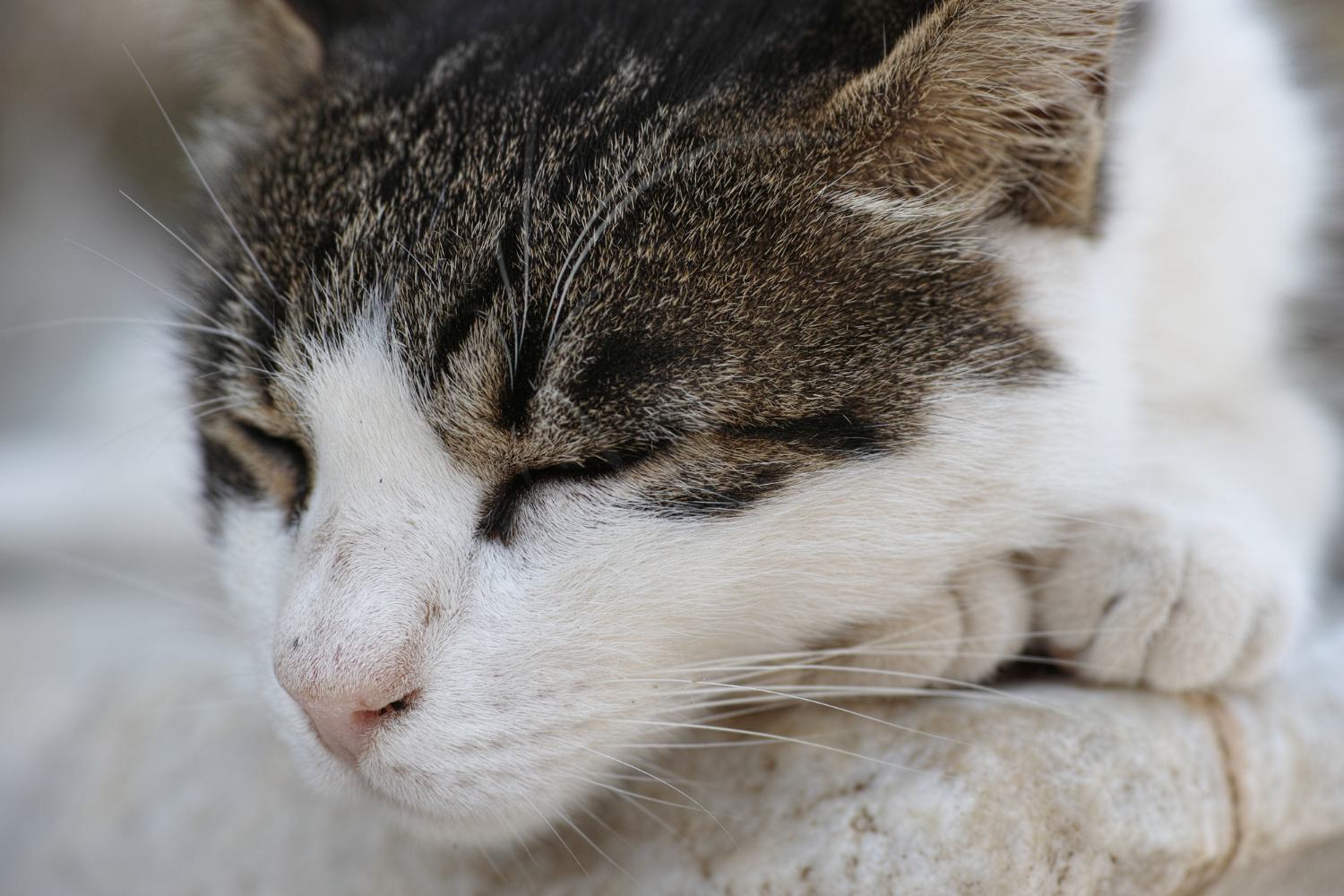
What is a Heart Murmur in Cats?
A heart murmur is an irregular heart sound, often described as a ‘whoosh’, that can be heard by listening to the heart with a stethoscope. It confirms that there is turbulent blood flow within the heart.
Heart murmurs are often graded from 1 to 6 based on their loudness. A grade 1 murmur is the quietest one and is easily missed, especially in a noisy consult room with an uncooperative cat. A grade 6 murmur is very loud and can sometimes even be heard without a stethoscope.
Importantly, a heart murmur does not always indicate heart disease, nor is it always cause for concern. Some cats with heart murmurs do not have cardiac disease, and not every cat with cardiac disease will have a murmur.
Causes of Heart Murmurs in Cats
There are a range of reasons why a murmur occurs, some more serious than others. The grade of the murmur won’t tell us why it is happening, and further tests are needed to determine this.
Congenital Heart Defects
When a kitten is born with a heart issue, such as a hole in the heart wall (ventricular septal defect) or a PDA (patent ductus arteriosus), it can cause a murmur, which is picked up during its first health check.
Acquired Heart Conditions
In older cats, cardiac diseases such as hypertrophic cardiomyopathy or dilated cardiomyopathy can cause murmurs. These murmurs are typically associated with other signs such as abnormal pulses, weakness, lethargy, and changes in breathing patterns.
Other Causes
A primarily cardiac issue doesn’t always cause a murmur. Conditions that affect the blood, circulation, and even the metabolism can all cause murmurs, too. Some of the more common offenders include:
- Anaemia
- Feline hyperthyroidism
- High blood pressure
- Stress
How to Recognise the Symptoms
A benign murmur does not accompany any other symptoms. However, a pathological murmur can occur alongside a range of different signs. What signs develop will depend on the cause of the murmur and the extent of the disease.
Early Signs to Watch For
Try to be as aware of your cat’s habits, sleeping patterns, and fitness levels as possible. If there is a noticeable change, bring this to your vet's attention. Initial signs can be vague and insidious, and the earliest stages are frequently attributed to a cat being ‘lazy’ or getting older.
Advanced Symptoms
As the disease progresses, cats will develop harder-to-miss signs. This can include rapid and laboured breathing, weakness, reluctance to exercise, a reduced appetite, a fluid-filled abdomen, and weight loss.
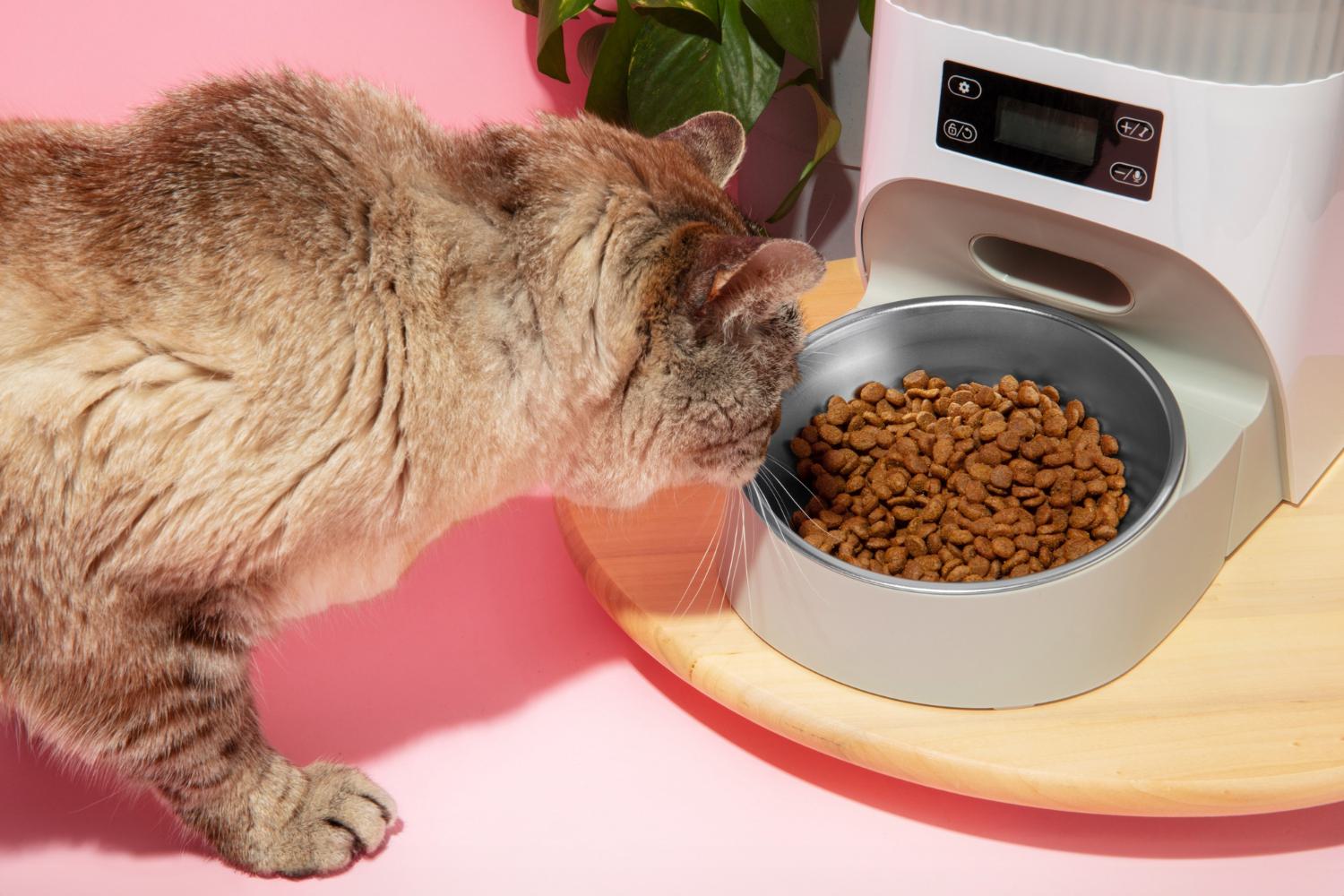
Diagnosing Heart Murmurs in Cats
Initial tests will be done in the consulting room, and a stethoscope can detect a lot from a physical check.
Veterinary Examination
Your cat will be checked from nose to tail, and your vet will look for any abnormalities, such as a goitre (swelling of the thyroid gland) in its neck, recent weight loss, rapid breathing, or abdominal bloating.
A heart murmur is a noise that will be diagnosed by listening to the heart. Your vet will also listen to the heart’s rate and rhythm and feel the pulse while doing this. They’ll listen to your cat’s chest to determine if there is any evidence of fluid retention.
Diagnostic Tests
The consensus is that a murmur that is a grade 3 or louder or causing signs should be looked into. Some of the more common tests done would include:
- Chest X-ray:A chest X-ray is done under sedation or anaesthetic and is a good way to assess the size and position of the heart, as well as the health of the lungs and larger blood vessels.
- An echocardiogram is an ultrasound scan of the heart and blood vessels that shows the direction of blood flow. A specialist may need to perform this.
- An electrocardiogram: This is a method of recording the electrical signals in the heart. This test is especially useful for identifying arrhythmias (irregular heartbeats).
- Blood tests: Measuring certain biomarkers, including Troponin and NT-pro BNP, can be helpful. When elevated, these can be an indication of cardiac disease.
- Blood pressure measurement: Generally, a cuff and Doppler ultrasound are used to measure blood pressure. It will be mildly elevated for most cats due to the stress of being in the consulting room, but this will be accounted for. Anything over 180mmHg systolic blood pressure would be deemed high.
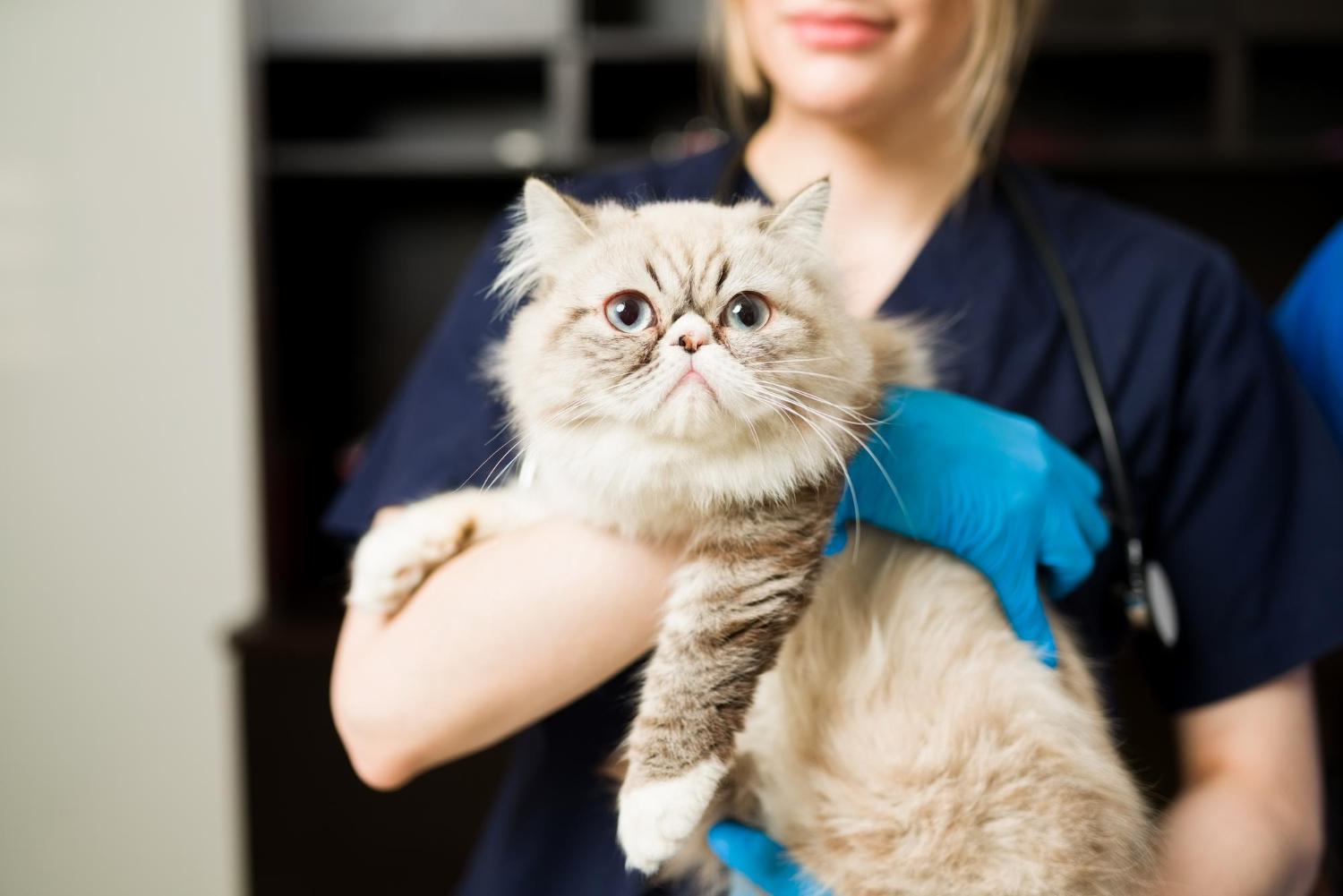
What Are the Best Treatment Options?
How a heart murmur is treated will depend on its cause. Lower-grade murmurs that do not cause symptoms do not require treatment and are usually just monitored.
Medication
Some cats are issued medication, such as tablets, to lower blood pressure or reduce the amount of circulating thyroid hormone.
In some cases, primary cardiac disease may also be treated medically. This can include medicines such as ACE inhibitors and diuretics.
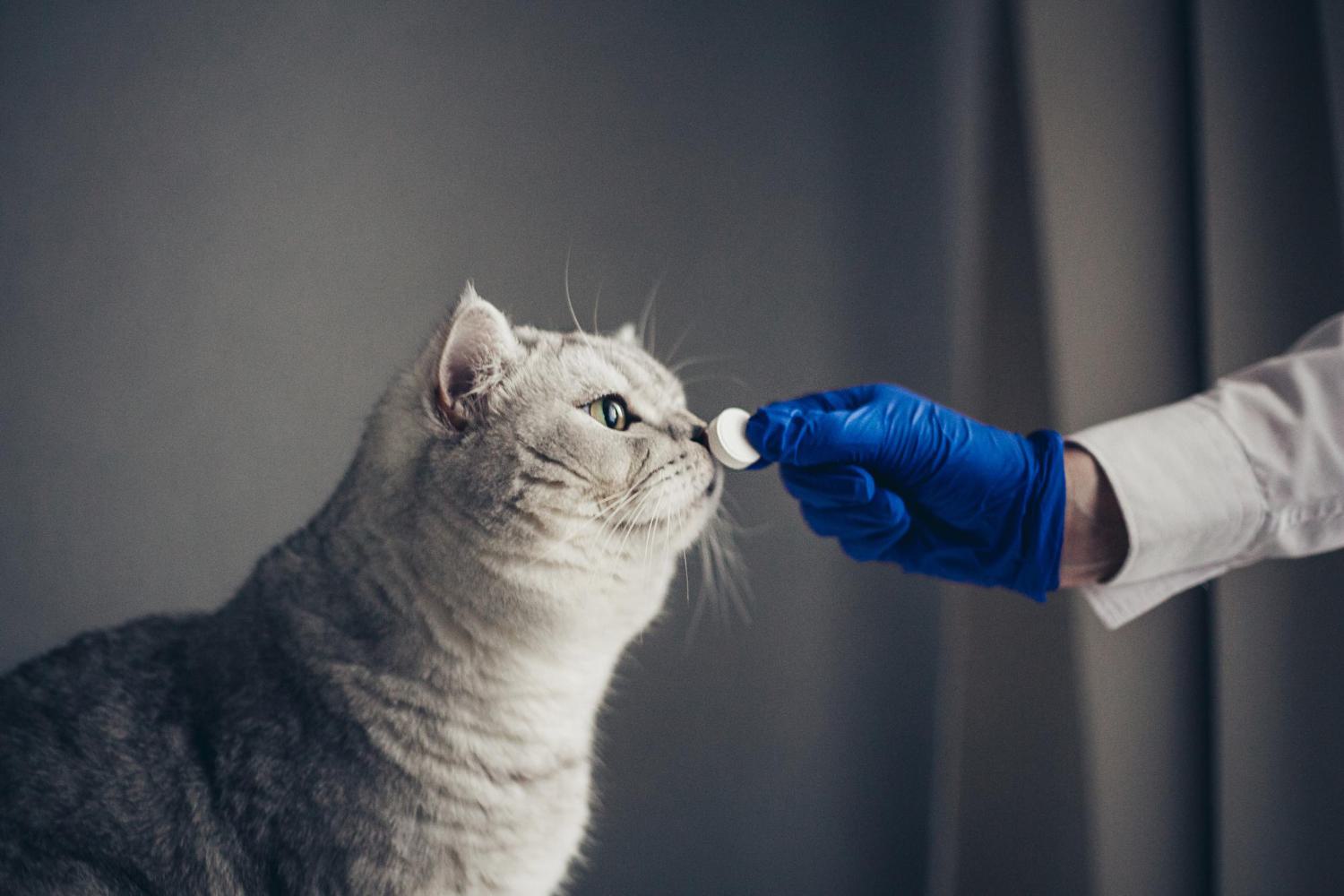
Lifestyle and Dietary Changes
Cats should be on a balanced diet containing all of the essential amino acids, including taurine, at a concentration of at least 0.3% dry matter. A taurine deficiency can be behind DCM in some cats.
For those with heart failure, sodium must be restricted to prevent high blood pressure, while cats on diuretics should be ingesting plenty of potassium and magnesium.
Omega 3 fatty acids can be beneficial, reducing the risk of arrhythmias. They can be supplemented daily. Overweight people should follow a diet plan to help them reach their target weight.
Depending on what is wrong with the cat, your vet may discuss avoiding strenuous or high-intensity exercise.
Surgical Interventions
Cardiac surgery is rarely advised for cats. Most clinics cannot provide this service and must refer to specialist centres.
How to Manage a Cat with a Heart Murmur
Your vet should devise a plan with you, which means your cat is being closely monitored, so any changes are picked up quickly. This ensures any therapy they need can be tailored to them, depending on the stage of their disease.
Regular Veterinary Check-ups
Many cats with heart murmurs are seen once or twice a year, but your cat may want to see you more often if your cat is on medication or has a higher-grade murmur.
Monitoring at Home
One of the best at-home tests you can do is the ‘resting breathing rate.’ When your cat is calm and resting or asleep, their breathing rate should be counted.
We want it to be no more than 30 breaths a minute. A higher rate could be a sign of any cardiac disease progressing and needs to be looked into urgently.
It is also sensible to monitor your cat’s awake and asleep time, activity levels, and mobility.
Keep an eye out for new symptoms of concern, such as abdominal swelling, pale gums, open-mouth breathing, or acting aloof. Remember, you’re the expert in reading your cat’s behaviour.
Creating a Stress-Free Environment
As stress is a factor for many cats, providing a calm and predictable home environment is advised. More anxious kitties may benefit from pheromone products, such as Feliway.
If you have young children or other pets (such as dogs), your cat must have a space to be alone. This can include cat beds on top of cat trees or in quiet rooms. Igloo-style beds offer a nice level of privacy.

Preventive Measures for Your Cat
Though heart murmurs and cardiac disease are not always avoidable, certain things can be done to help encourage good heart health.
Vaccinations and Parasite Control
Keep your cat up to date with its vaccinations to prevent them from becoming unwell with an infection such as FeLV (Feline Leukaemia Virus) or Feline Panleukopaenia.
Similarly, regular worming is a must. Both viral infections and worm burdens can cause anaemia. This is a low red blood cell count, which can lead to a temporary heart murmur.
Maintaining a Healthy Weight
Obesity has the potential to lead to many issues for your cat, including cardiovascular disease. Extra body fat means the heart has to work harder to pump blood around the body. Try to stick to a Body Condition Score of between 4 and 5 on a 9-point scale.
Routine Health Screening
Regular checkups are very important. They provide your cat with vaccines and parasite prevention, assess their weight, and perform a full health check.
Heart murmurs and irregular heart rhythms cannot be detected from home, making a clinical exam even more vital.
When to Seek Immediate Veterinary Care
There are certain signs that would warrant seeing a vet, regardless of the time or day.
Emergency Signs
Knowing what counts as ‘emergency signs’ can save your cat’s life. If ever in doubt, contact your emergency vet. This is true even if it is the middle of the night; there will always be someone available to help guide you. These visits should not be left until morning.
Difficulty Breathing
Difficulty breathing (dyspnoea) is always a red flag sign. Open-mouth breathing is never normal in a cat and is a true emergency. Similarly, a resting breathing rate greater than 30 breaths per minute should be considered.
Another indication that your cat is not coping would be if it is standing with its neck extended and elbows pointed out, trying to catch its breath.
Collapse
Any fainting episode, collapse, or seizure would warrant an immediate vet visit.
As well as falling to the floor, you may notice other signs such as grey or blue gums, muscle twitching, or confusion.
Get More Help for Heart Murmur in Cats
Contact us if you have any concerns about your cat's heart health. Our staff is here to help you and your furry friend. An emergency appointment can be booked so your cat can be seen immediately.
Continue reading

Signs of a Broken Tail in Dogs: Is it an Emergency?
Broken tail in dogs: warning signs and when it’s an emergency
Read article
Is a Dog Vomiting Blood an Emergency?
Is your dog vomiting blood? When to act and why it matters
Read article
Severe Allergic Reactions in Dogs
Severe allergic reactions in dogs: symptoms, causes and emergencies.
Read article